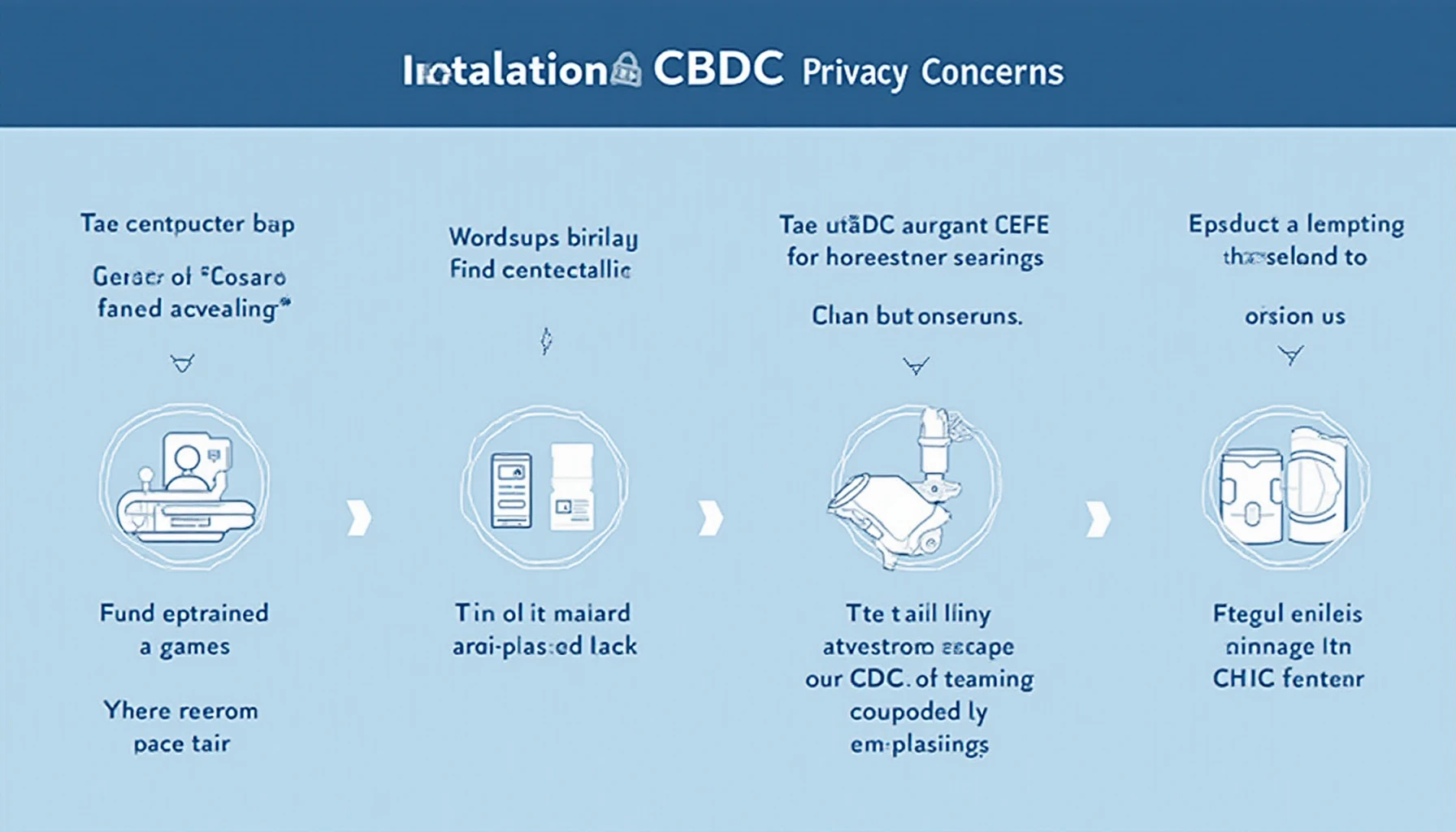Introduction: Are CBDCs Crossing Privacy Boundaries?
As central banks globally race towards implementing Central Bank Digital Currencies (CBDCs), the privacy implications of these digital currencies have emerged as a contentious issue. A startling 60% of consumers express concerns regarding personal data usage in CBDC systems. How are these issues being addressed, and what solutions are available to mitigate these concerns?
Understanding CBDC Privacy Concerns
The primary privacy concerns surrounding CBDCs can be summarized in a few key points:
- Data Surveillance: Governments may track every transaction, leading to invasions of personal financial privacy.
- Centralization Risks: Unlike decentralized cryptocurrencies, CBDCs rely on central authority, increasing data vulnerability.
- User Control: Many users fear losing control over their private data, as CBDCs do not offer the same level of anonymity as traditional cash transactions.
Solutions for Enhancing Privacy in CBDCs
Several practical solutions have been proposed to address these privacy concerns in CBDC implementation:

1. Privacy-Enhancing Technologies (PETs)
Implementing PETs can mask transaction details while ensuring compliance with regulatory requirements. For example, technologies like zk-rollups allow verifying transactions without revealing sensitive information. Think of it as shopping in a farmer’s market; you can validate quality without exposing every detail of your purchase.
2. Hybrid Models
A hybrid approach combining public and private ledgers could balance the need for data oversight and individuals’ privacy rights. Users could choose anonymized transactions for everyday purchases while permitting the government oversight under specific situations, similar to opting for a public or private chat in a messaging app.
3. Legislative Frameworks
Establishing comprehensive data protection regulations governing CBDC usage is crucial. Legislation akin to the EU’s General Data Protection Regulation (GDPR) can empower consumers, ensuring that their data remains confidential and only collected with informed consent.
Impact on Stakeholders: A Broader Perspective
The implications of selecting the right privacy measures are significant for various stakeholders, including:
- Governments: Must balance data tracking for monetary policy effectiveness and individual privacy.
- Financial Institutions: Need to navigate compliance without losing customer trust.
- Consumers: Must remain informed on how their data is handled and advocate for their privacy rights.
Conclusion: Embracing a Secure CBDC Future
As we venture into a digital currency era, it’s essential to prioritize privacy to ensure widespread acceptance of CBDCs. By implementing robust privacy measures, fostering an informed community, and engaging regulatory bodies, we can pave the way for a secure future. Remember, a secure digital wallet is just a click away— download our complete guide on secure cryptocurrency storage now!



























